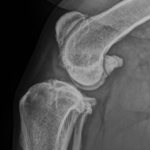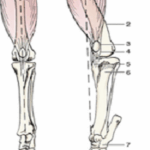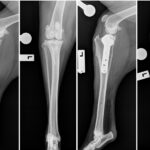One of the most hotly debated topics amongst vets over the last few years is whether there is a need to vaccinate pets annually, or if less frequently is more appropriate.
Before I start, I will say that I believe vaccines are absolutely essential to help keep most pets healthy. In my 16 year career, I have seen hundreds of cases of parvovirus (with over 70% of those being euthanased or dying as a result of the disease) but NOT ONE OF THEM was adequately protected by vaccines. I have NEVER seen a case of parvovirus in a dog that has been fully vaccinated according to our recommendations.
I will also say I have seen at least 2 dogs over that time that I believe (I have no clear proof, but the timing is important) were made seriously unwell by a vaccination. Assuming it was the vaccine that caused these problems in both cases, that is 2 dogs in 16 years. Assuming I vaccinate an average of 3 dogs/day, I would have vaccinated around 11000 dogs in my career. So less than 1 in 5000 may have become sick as a result of the vaccine.
Now, if we were to assume that half of dogs are vaccinated, we have 2 animals potentially become sick as a result of vaccinations, compared to several hundred seriously sick and dead as a result of not being vaccinated. The maths to me is pretty simple. Vaccines save lives.
Now that we’ve established vaccines as being important, it brings us to the next point we need to discuss. Should my dog be vaccinated every year? To me, the answer is “it depends”.
For the vast majority of dogs, vaccination against parvo, distemper and hepatitis only needs to be done every 3 years. There is plenty of evidence to support this as being a safe and effective vaccination schedule. I would consider vaccinating a dog more frequently if they were considered very high risk of exposure to these diseases, such as if a puppy in the household contracted parvovirus. But, as I say, for most dogs every three years is enough.
If vaccines are so safe, why not give them every year? Well, as I said above, I believe I have seen 2 dogs become unwell as a result of vaccines. The risks from having a vaccine are very small, but why take the risk? If we know these vaccines are effective for 3 years, why risk the pet having a reaction when the vaccination is unnecessary?
As for Canine Cough vaccines, we know that these vaccines don’t last longer than 12 months, so annual vaccination against these diseases is needed if your dog is at risk of contracting Canine Cough. These are dogs that go into kennels, go to grooming centres or dog training classes, and those that meet a lot of other dogs out and about on walks.
I believe we need to tailor the vaccine schedule to each individual pet, taking into account its age, health and exposure risk. Each dog should only be vaccinated as often as truly necessary, and only against the diseases which it is at risk of exposure.



